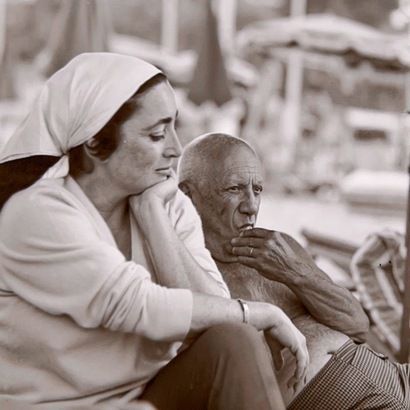Meeting Pablo Picasso
Richard de Grab joined Pablo Picasso at the beach on the Côte d'Azur in the summer of 1963. The Spanish painter spent hours there, always surrounded by many friends and family members.
He was accustomed to receiving guests there.
De Grab remembers a debate between Jacques Prévert and Picasso on bullfighting. The discussion was so heated that the great poet fell from his modest chair onto the sand.
Picasso preferred to avoid artistic discussions in the presence of his entourage.
De Grab was nevertheless able to ask Picasso a few questions.
What led you to Cubism?
"When I was a child, I drew like a Rafael, but it took me my whole life to learn to draw like a child. I have always had great admiration for the work of Ingres. Copying others is necessary, but copying oneself is tragic... Making paintings was as important to us as discovering what was around us.
So was research central to your approach?
"Searching means nothing in painting, it's finding that's important. When you paint you don't know what will come up, it's not indecision but everything changes as you work..."
What is the ideology that drives you?
"Reality is more than the object itself, it's the way you see things. I am always looking for the supra-reality..."
Do you think that painting is a supreme art, as some painters claim?
"The arts are very close to each other: you can write a painting with words as you can paint sensations in a poem."
And what is your favourite work of art?
"I was delighted to discover Douanier Rousseau's "The Polish Teacher", I kept it at home for years and it is still one of my favourite works. The discovery of this painting is amusing. He had discovered this painting on Rue des Martyrs, in a bedding and mattress shop.
On the beach, there was no shortage of admirers of all ages. A small child timidly approached the painter with a piece of paper in his hand. Picasso took a pencil from an imposing briefcase and signed the autograph with kindness. He always carried this case with him. It contained many books about Picasso. He would then return with it as the sun set on the Côte d'Azur.
Elodie Couturier
Expert Archives
Subscribe to our Youtube channel Expertisez and don't miss any news


